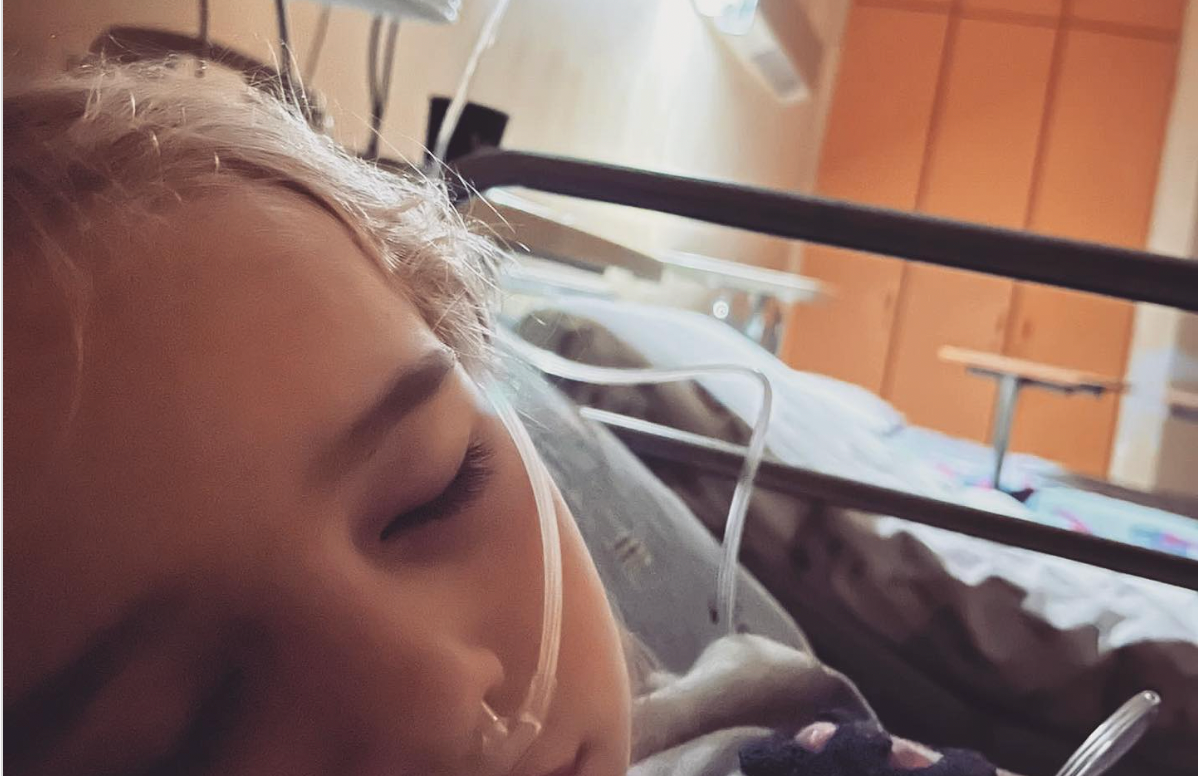Charlie Simpson’s son rushed to hospital during family holiday as Busted star shares ‘terrifying’ experience
‘It was the worst thing we have ever experienced,’ he said

Your support helps us to tell the story
From reproductive rights to climate change to Big Tech, The Independent is on the ground when the story is developing. Whether it's investigating the financials of Elon Musk's pro-Trump PAC or producing our latest documentary, 'The A Word', which shines a light on the American women fighting for reproductive rights, we know how important it is to parse out the facts from the messaging.
At such a critical moment in US history, we need reporters on the ground. Your donation allows us to keep sending journalists to speak to both sides of the story.
The Independent is trusted by Americans across the entire political spectrum. And unlike many other quality news outlets, we choose not to lock Americans out of our reporting and analysis with paywalls. We believe quality journalism should be available to everyone, paid for by those who can afford it.
Your support makes all the difference.Busted singer Charlie Simpson’s four-year-old son Jago has been rushed to hospital abroad, he has revealed.
The pop frontman shared a photograph of his youngest son in A&E with a tube coming out of his nose.
The 37-year-old revealed that he and his family were on holiday when Jago suffered “secondary drowning”.
Secondary drowning is a rare condition that occurs when a child inhales water while swimming, causing the lungs to become inflamed and damaged.
Symptoms of the complex condition can take up to 24 hours to develop after a person has been in the water.
In an Instagram post accompanying the photograph, Simpson wrote: “Hi all. I wanted to share a terrifying experience we had recently with my youngest son Jago, in the hope that if it helps just one person avoid a similar situation, it will be worth it.
“We were on holiday enjoying a morning in the pool. Jago is a strong swimmer for his age and he was swimming under water but suddenly came up spluttering and coughing.”
He added that his son was not left unattended “at any point” and that the incident was “momentary” and did not strike them as particularly unusual.
Simpson said they removed Jago from the pool and that he seemed fine and happy for the rest of the day.
By the evening, however, things took a turn for the worse.
“At dinner he became very lethargic and went to sleep in my wife’s arms. After dinner he suddenly woke up and started projectile vomiting,” Simpson said.
A doctor was called and diagnosed the child with food poisoning, and advised Simpson and his wife to put their son to bed.
“Before the doctor left, I suddenly remembered Jago coughing in the pool that morning and I remembered reading about a condition called secondary drowning, so I relayed it to the doctor.
“After hearing this, his demeanour changed and he told us to go to A&E straight away,” he revealed.
Simpson said it took them an hour to reach the hospital, during which time Jago’s condition deteriorated.
The dad-of-two continued: “He seemed to be drifting in and out of consciousness.
“He was rushed through to have CT scans and X-rays and to our absolute horror, we were told that he had water in his lungs and was minutes away from pneumonia.”
Jago was subsequently diagnosed with secondary drowning.
“He spent the next three days in hospital and I’m so thankful for the amazing care he received. It was the worst thing we have ever experienced,” said Simpson.
“The scariest thing of all, is that had we not taken him to hospital when we did, the outcome could have been very different.”
Secondary drowning, or “dry” drowning, are terms used to describe breathing difficulties experienced after water-related incidents.
However, these terms have been contested by the World Health Organisation (WHO) in recent years, who argue that the term “drowning” should be used to refer to all breathing difficulties related to water incidents.
According to the National Water Safety Forum, 277 people died in 2021 from drowning.
Join our commenting forum
Join thought-provoking conversations, follow other Independent readers and see their replies
Comments